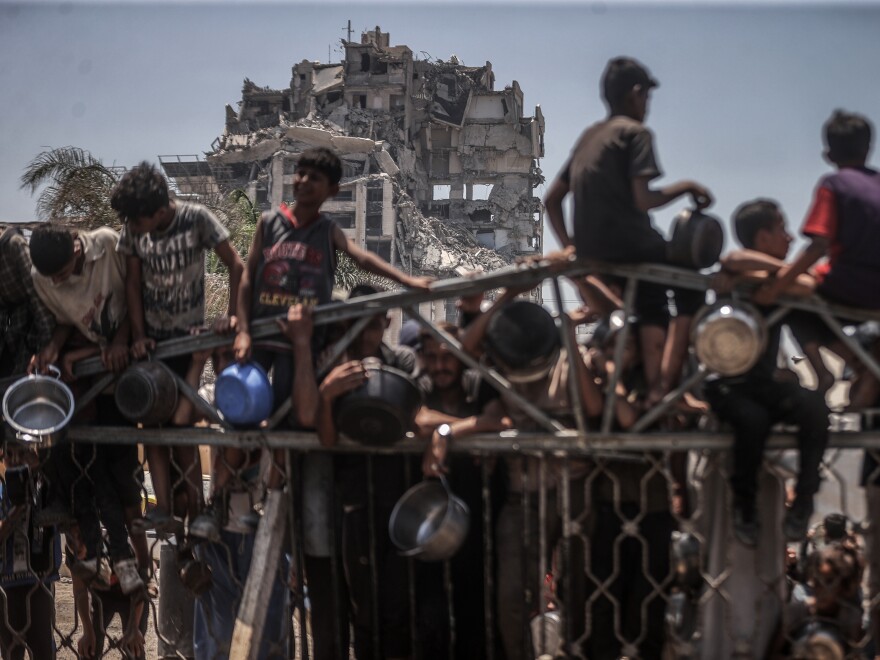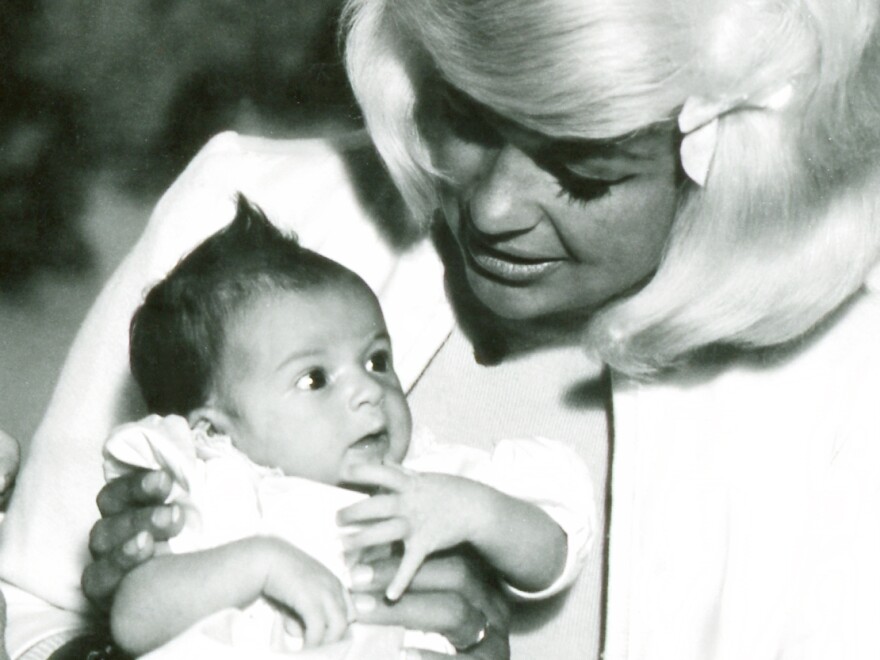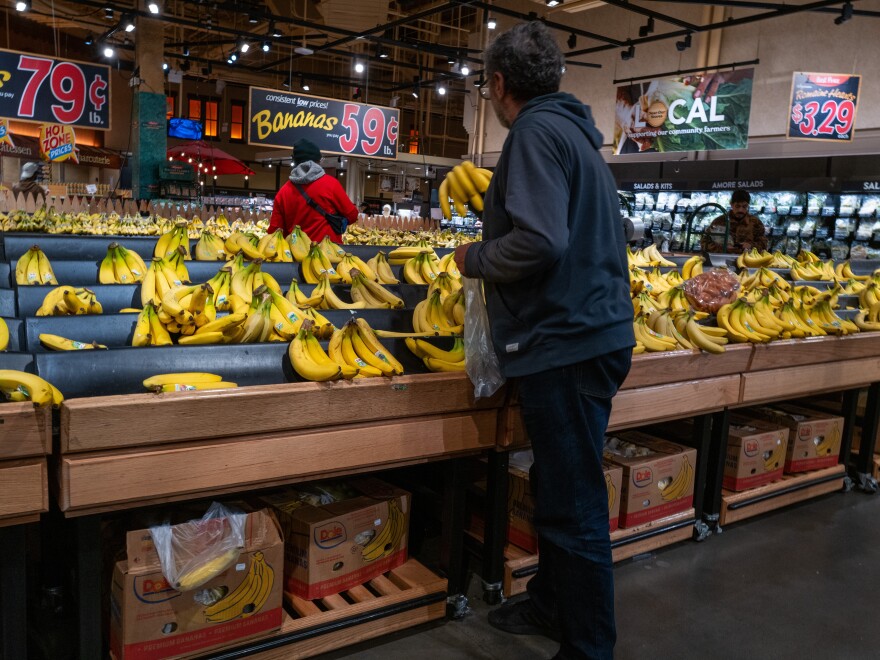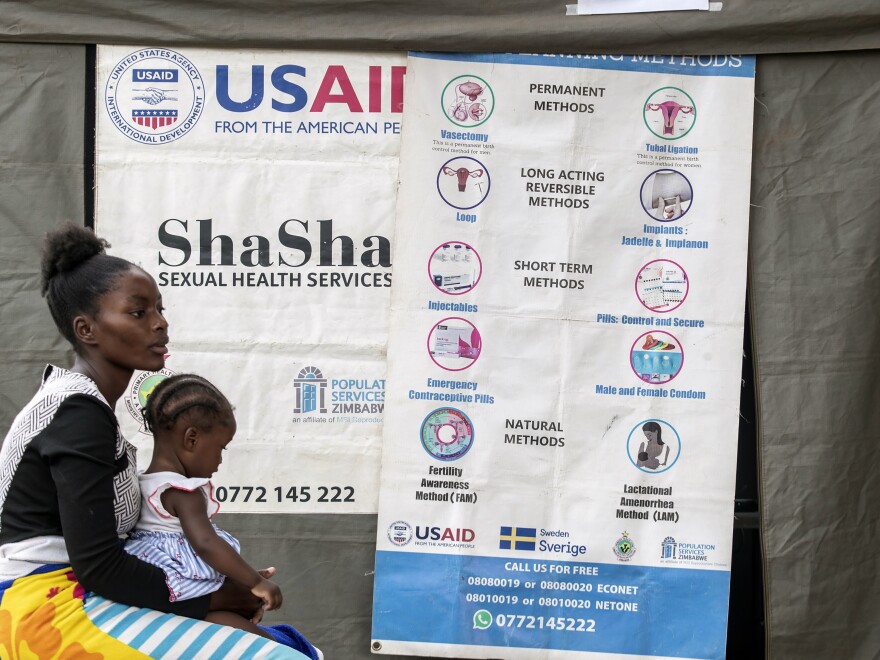Updated @ 11:43 AM EDT on July 29, 2025
Amjad Al Shawa has been working in Gaza as a humanitarian relief coordinator. He is regarded as the link between various civil society organizations and has long labored to provide food, water, and medicine to those in need as the director of the Palestinian NGO Network. However, now that he is limited to northern Gaza, he claims he is unable to support his own family, even with the most basic necessities.
Al Shawa said, “We are managing ourselves, with one meal, which could be some rice,” on July 28 in an interview with Michel Martin of NPR. “Yesterday I managed to have a salad which cost me about $60 for two dishes of salad for the family, me and my wife and three children.”
Due to Israeli limitations on help, Gaza’s food system has collapsed. Fresh fruit, vegetables, and milk are gone. Bread is not common. Today, a kilogram of flour costs about $20. $120 for sugar. Al Shawa claims that even humanitarian workers are experiencing hunger.
Israeli military spokesperson Brig. Gen. Effie Defrin responded to allegations of intentional malnutrition by telling reporters on Sunday:
“No one is going hungry. It’s not a goal. For us, it is not a war aim. Our adversary is Hamas. Hamas is cynically employing its people as human shields to launch this famine war against Israel and the IDF. In a separate statement, the IDF declared that it is still conducting humanitarian efforts in Gaza and referred to claims of intentional famine as “false.”
Al Shawa’s report coincides with warnings from foreign observers that famine may soon be declared in some areas of Gaza. According to the UN-backed IPC classification, more than 470,000 people—roughly one in five residents—are currently experiencing “catastrophic” hunger circumstances. Additionally, it comes as the Israeli government has been vehemently disputing the accusation of genocide in Gaza for more than two years. The accusation was made in a recent study titled “Our Genocide” by two well-known Israeli human rights organizations.
Like most of Gaza, the infrastructure surrounding Al Shawa is in ruins.
“I spent a month or fifteen months away from home. When I returned, I discovered that my house and surrounding neighborhoods were severely damaged.There is a ton of debris all around me, and there are tents on every street, corner, and in every available area.”
He worries that thousands of people may starve to death in the coming days and that the worst is not yet over.
“Everything is necessary. Everything. Additionally, I am unable to keep food, water, cleanliness, and medication separate.”
Al Shawa talked with Michel Martin of NPR about his daily observations and his worries about the future.
For clarity and duration, the interview has been modified.
Interview highlights
Michel Martin If you were to physically survey your current location, how many of the buildings, for instance, are stable where you live?
Al Shawa: I spent a month or fifteen months away from home. When I returned, I discovered that my house and surrounding neighborhoods were severely damaged. There is a lot of debris all around me, and there are tents on every street, corner, and in every available place.
Martin Where you are, how easy is it for people to get food and water?
Al Shawa: Due to a serious lack of food supply, the one meal we had been eating for the previous four months vanished. We’re relying on either some rice with nothing or bread, if we can get [it]. No fresh food is available. Fruit, vegetables, meat, and milk are all absent. There are roughly 55,000 of us. They cannot be breastfed by their mothers. There’s no milk, either. Mothers are sometimes the ones feeding the kids and boiling the rice.
MartinHow are things going for you and your family?
Al Shawa: I was able to prepare two salad meals for my wife, three kids, and myself yesterday, which came to roughly $60. Living is [not] an easy mission. One kilogram of flour [is] currently around $20, you know.
Martin: A kilogram of flour for twenty dollars?
Al Shawa: In agreement.
Martin: Do you have any cooking utensils?
Al Shawa No. I’m referring to the flour we use to create bread. We must use these conventional ovens since we lack bakeries and cooking gas. Additionally, if you would want to purchase one kilogram of sugar—you know, sugar for energy— I may witness young males losing consciousness or just collapsing due to a lack of strength. Four months have passed. It’s engineered starvation, I say.
Martin: Where can one find water?
Al Shawa: We rely on humanitarian organizations to deliver water to our homes, and they have a very limited supply—between three and five liters per day for daily use—whereas before to the war, we had eighty liters per day.
Martin: May I inquire what you plan to eat today?
Al Shawa: You know, I’m not asking, and I’m not sure. And when I go there, whatever this whatever what we have, I’m saying we are in good condition. My goal is to save as many lives as possible, both here and elsewhere.
MartinHow many people do you believe, based on your information, are at risk of dying from starvation?
Al Shawa: If all that has entered is flour, I’m worried about thousands in the coming days. If I’m talking about the nutrition chain, it’s not only flour. Everything is necessary for us. Everything. And I cannot separate the food from water, from hygiene, from medicine. All this package is supposed to be. I called urgently, who has this kind of professional physicians on the issue of nutrition, to come to struggle, to come to Gaza to save these lives, with equipment, with materials, with supplies, to save the lives of these children.
The audio version of this interview was produced by Ben Abrams.
Copyright 2025 NPR






